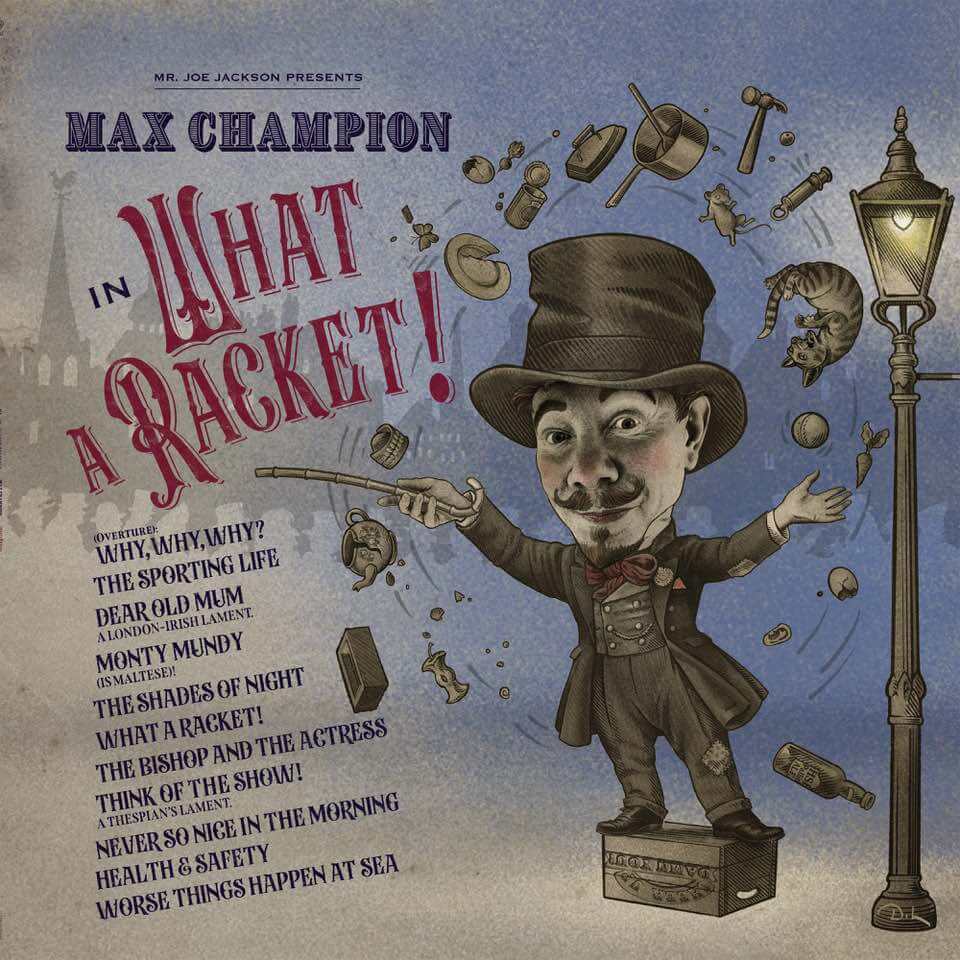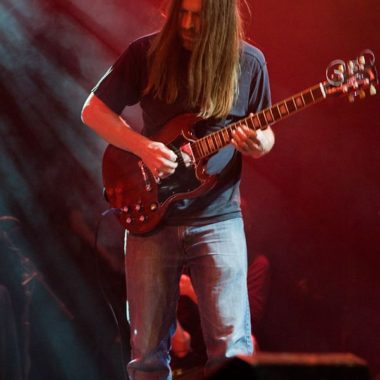A step ahead at looking back. In April, I wrote about Joe Jackson’s 1981 album Jumpin’ Jive in a review of Taj Mahal’s recent album of early jazz songs. Since then, Rickie Lee Jones has issued a respectable collection of crooner tunes, and countless rockers-of-certain-ages have done so before, generally with far lesser results than Jackson, Jones and Mahal (special dispensation given to Bob Dylan’s Shadows in the Night). It’s hard to imagine a rush to take on the Music Hall songbook, but Jackson was already ahead of the retro curve once. His new Mr. Joe Jackson presents: Max Champion in ‘What A Racket!’ delves into the distinctly British tradition with a set of songs purportedly salvaged from the dustbins of musical history.
Music Hall was a particularly working class pastime from the middle 19th century into early in the 20th. The songs in a music hall show might run bawdy or morbid, but were almost always catchy and cheeky. The Beatles (or at least Paul McCartney) dabbled in the style with such songs as “Honey Pie” and “Your Mother Should Know.” More recently, the Vaudevillian tradition was namechecked in the movie Mary Poppins Returns with the song “A Cover is Not the Book” and The Royal Doulton Music Hall.sequence. But those are sanitized versions of what could get pretty caustic for its day.
Jackson hews true to the spirit with these eleven songs (coming Nov. 24 from earMUSIC on CD, LP and download) and all in good fun. He puts on a thick cockney and the members of his 12-piece orchestra chime in on sing-along choruses. There’s a lot of bemoaning one’s lot, a soppy dedication to a hardworking mum and enough boozers and bangers to keep it on heavy rotation. The title track might be about London but it’s as fine an urban anthem as when Ralph and Ed sang “My Love Song to You” (“The garbage cans go clang / the radiator goes bang / and the vacuum cleaner makes a racket, too”) in one of The Honeymooners finer moments. Interestingly enough, it’s hard to find any information on Champion, but who am I to cast doubt on a good old revival? If Jackson’s efforts get Robert Plant to record a cover of Leslie Sarony’s “Ain’t it Grand to be Blooming Well Dead,” it’ll all be well worth it.
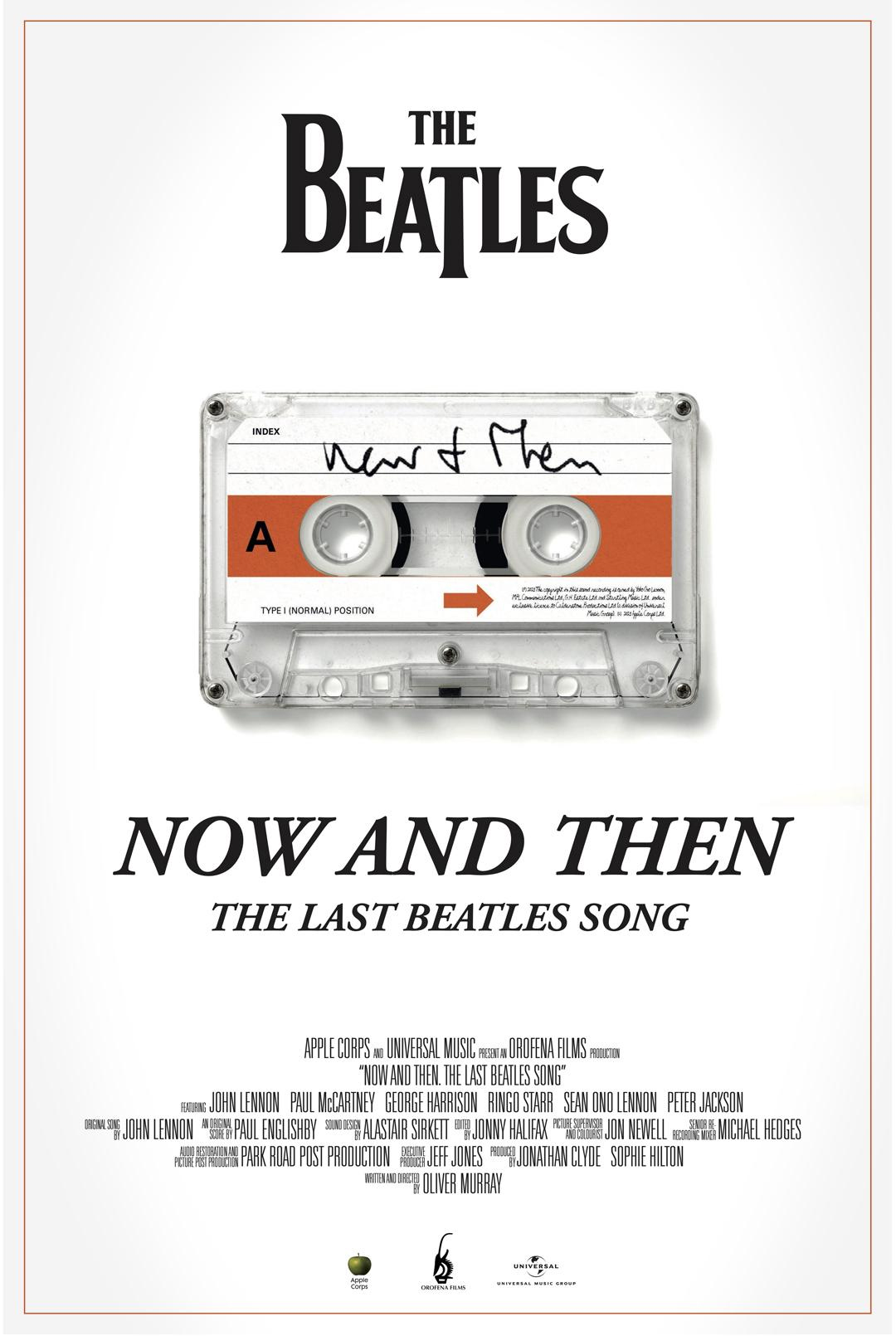 Beatle Bones ‘n’ Smokin’ Stones. It’d be just as easy to trash “Now and Then”—the “final” song by the Beatles—as it would be to herald it as another brush with genius for which we are unworthy. But time will show that what it is is just OK. The track is built off a home demo left behind by John Lennon. The three surviving Beatles worked on it in the ’90s, when they completed and released two other Lennon demos as Beatles songs, but at the time it was deemed too rough to work with. Newer technology allowed Lennon’s vocals and piano to be isolated and cleaned up. The since departed George Harrison’s guitar was brought in from the ’90s sessions and Paul McCartney and Ringo Starr finished it off. Especially in his post-Beatle years, Lennon was capable of touching sentimentality in his songs; witness “Beautiful Boy” and “Woman” as just two examples. “Now and Then” strikes a similar chord, even if it’s not altogether as strong a song. What’s strange about it, though, and diminishes the impact, is how slapdash it feels. I have no doubt many hours were spent creating the song, but the compression (at least on streaming services) is so severe I barely feel as if I’ve heard it, and the cover art seems hardly thought about. The whole effort lacks luster, which is too bad. The final Beatles song, at least for me, will forever be “Her Majesty.” “Now and Then,” in the end, is neither here nor there.
Beatle Bones ‘n’ Smokin’ Stones. It’d be just as easy to trash “Now and Then”—the “final” song by the Beatles—as it would be to herald it as another brush with genius for which we are unworthy. But time will show that what it is is just OK. The track is built off a home demo left behind by John Lennon. The three surviving Beatles worked on it in the ’90s, when they completed and released two other Lennon demos as Beatles songs, but at the time it was deemed too rough to work with. Newer technology allowed Lennon’s vocals and piano to be isolated and cleaned up. The since departed George Harrison’s guitar was brought in from the ’90s sessions and Paul McCartney and Ringo Starr finished it off. Especially in his post-Beatle years, Lennon was capable of touching sentimentality in his songs; witness “Beautiful Boy” and “Woman” as just two examples. “Now and Then” strikes a similar chord, even if it’s not altogether as strong a song. What’s strange about it, though, and diminishes the impact, is how slapdash it feels. I have no doubt many hours were spent creating the song, but the compression (at least on streaming services) is so severe I barely feel as if I’ve heard it, and the cover art seems hardly thought about. The whole effort lacks luster, which is too bad. The final Beatles song, at least for me, will forever be “Her Majesty.” “Now and Then,” in the end, is neither here nor there.
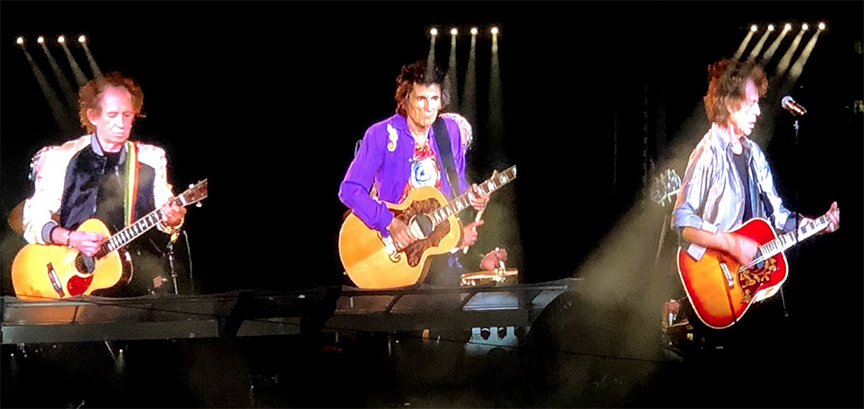 Meanwhile, the Rolling Stones have a new album out, their first set of new songs since 2005’s A Bigger Bang, and with cover art as amateurish as the Beatles single. I’m not going to review Hackney Diamonds simply because I lost interest. I got a bit of a thrill out of the first two advance tracks and how much they sounded like themselves but by the third I was ready to move on. Still, to keep being the Rolling Stones through seven decades is pretty remarkable. That a group of teenage boys who started a band to play the blues and get laid should, through some accident of history, become so wildly successful is one of the touchstone stories of 20th century culture. They made some great records along the way, although I would argue that their good-songs to years-spent-making-them ratio is fairly low. It’s easy to fall into either loving them or hating them for their success, but they’ve only ever done what they set out to do, with enthusiasm and, sometimes, poor judgment. I imagine I’ll get around to listening to the rest of the new album, but for me, the final Rolling Stones song will forever be “Waiting on a Friend.”
Meanwhile, the Rolling Stones have a new album out, their first set of new songs since 2005’s A Bigger Bang, and with cover art as amateurish as the Beatles single. I’m not going to review Hackney Diamonds simply because I lost interest. I got a bit of a thrill out of the first two advance tracks and how much they sounded like themselves but by the third I was ready to move on. Still, to keep being the Rolling Stones through seven decades is pretty remarkable. That a group of teenage boys who started a band to play the blues and get laid should, through some accident of history, become so wildly successful is one of the touchstone stories of 20th century culture. They made some great records along the way, although I would argue that their good-songs to years-spent-making-them ratio is fairly low. It’s easy to fall into either loving them or hating them for their success, but they’ve only ever done what they set out to do, with enthusiasm and, sometimes, poor judgment. I imagine I’ll get around to listening to the rest of the new album, but for me, the final Rolling Stones song will forever be “Waiting on a Friend.”
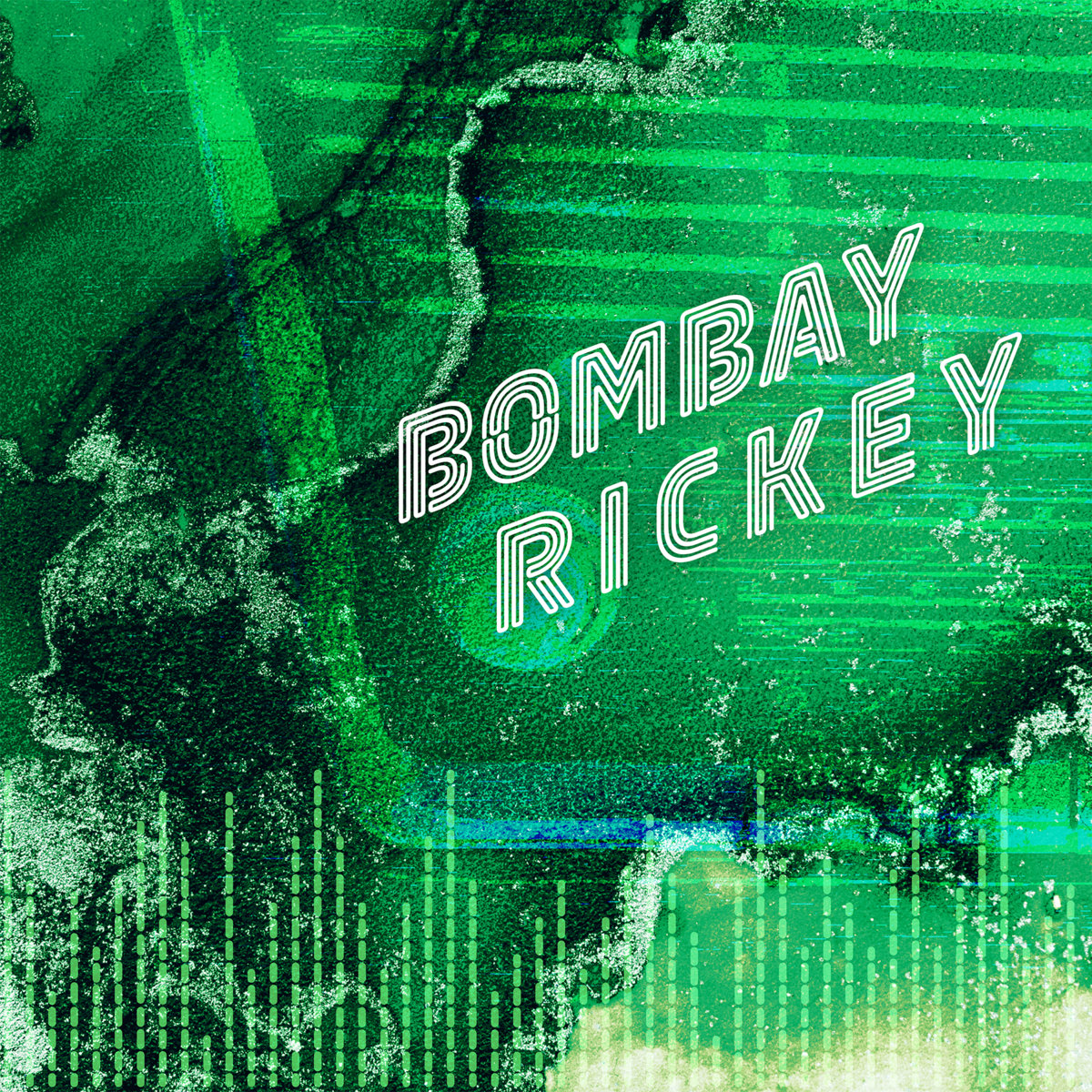 NYC exotica. Bombay Ricky make a lot out of their collective heritage—they even named their label “Cowboys and Indian”—but the model of their musical hybrid is something particularly, and peculiarly, American. They quite consciously draw from the faux-foreign records of the 1960s and singer Kamala Sankaram (more often heard in contemporary opera productions than with this eclectic quintet) can easily cop the Yma Sumac octaves. The new self-titled album (download and streaming Nov. 17) is their third and the first release since 2018’s Electric Bhairavi. With it, they seem to have grown into their cheeky adult contemporary. “WHY” never finishes its question and includes what might be a saxophone/kazoo unison duet, but it’s convincing in a Bacharach kind of way. The infectious lead single “Beech Face” came with a cinematic thriller of a video starring woman-about-town Anna C. Cabanna. It’s not all retro cheese, although clearly they love that. Within the tunes are smart arrangements and some truly odd moments. Their ship only passes by every four or five years so get on board while you’ve got the chance.
NYC exotica. Bombay Ricky make a lot out of their collective heritage—they even named their label “Cowboys and Indian”—but the model of their musical hybrid is something particularly, and peculiarly, American. They quite consciously draw from the faux-foreign records of the 1960s and singer Kamala Sankaram (more often heard in contemporary opera productions than with this eclectic quintet) can easily cop the Yma Sumac octaves. The new self-titled album (download and streaming Nov. 17) is their third and the first release since 2018’s Electric Bhairavi. With it, they seem to have grown into their cheeky adult contemporary. “WHY” never finishes its question and includes what might be a saxophone/kazoo unison duet, but it’s convincing in a Bacharach kind of way. The infectious lead single “Beech Face” came with a cinematic thriller of a video starring woman-about-town Anna C. Cabanna. It’s not all retro cheese, although clearly they love that. Within the tunes are smart arrangements and some truly odd moments. Their ship only passes by every four or five years so get on board while you’ve got the chance.

